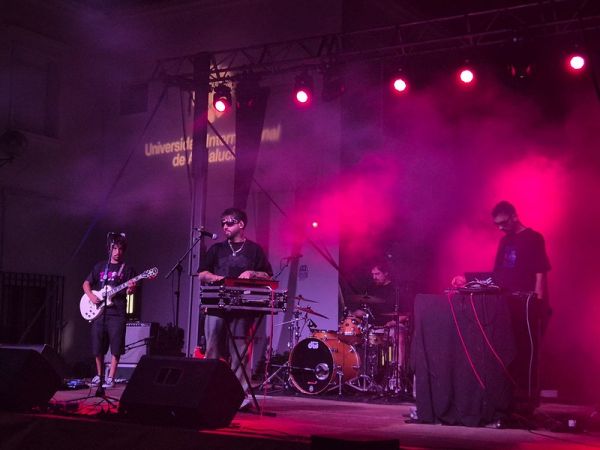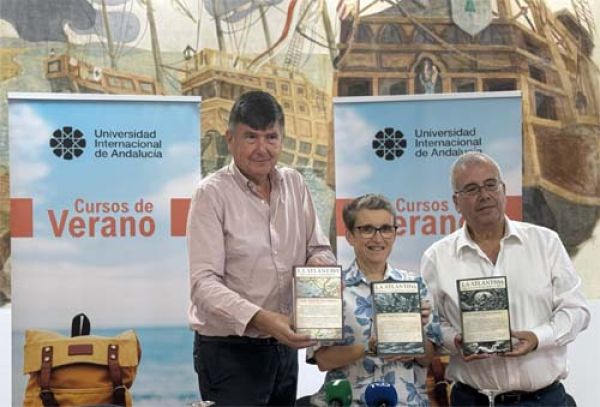

Resolution laying down the instructions for submitting proposals to organize workshops on cultural heritage
Under Article 1 of the Recast Text of the Act on the Creation of the International University of Andalusia or UNIA (Texto Refundido de la Ley de Creación de la Universidad Internacional de Andalucía), adopted by Spanish Legislative Decree No. 2/2013 of 8 January 2013, UNIA is established as a university for the creation, development, transmission and critique of science, technique and culture through teaching, coordinated research and the sharing of scientific and technological information of international and interregional interest...
Moreover, Article 5, point 2 of the Text states that “The University shall also organize and implement scientific and cultural activities, summer courses and lifelong learning activities and promote scientific conventions...”
One of its preferential lines of action is that of the various aspects of the conservation, restoration and use of Cultural Heritage from a comprehensive approach related to territorial development. UNIA has been involved in these activities since 1996, essentially as part of the role assigned to the Andalusian Centre for Rural Development Studies (CAEDER). This materialized in the creation and later implementation of the Permanent Seminar on Historic Heritage (Seminario Permanente de Patrimonio Histórico). Since then, UNIA has organized meetings (workshops, courses, seminars, conferences and other types of activities for the discussion, debate, training and dissemination of the different perspectives related to Cultural Heritage and territorial development, including the promotion of international cooperation and scientific exchange in this area.
In order to organize the programme of the International Workshops on Cultural Heritage 2019/2020, a procedure must be established for the submission and selection of proposals.
This Rectorate, in view of the above and in accordance with its statutory powers, has agreed to make a public call for proposals on the organization of activities in the context of the “International Workshops on Cultural Heritage, 2019/2020,” with the following instructions:
- Timeline
Academic activities will take place in July 2020 at the Antonio Machado Site in Baeza, although it will also be possible to consider any of the other three sites of UNIA (i.e., La Rabida, Malaga and Seville) at the request of the organizers of a given proposal.
UNIA will decide on the exact dates once the programme has been completely defined. An effort will be made to consider the proposals made by the organizers in this regard.
- Organizational requirements
The workshops will have a duration of three days (two full days and the morning of the third day).
Working languages will be Spanish and English. However, considering the nature of this area of knowledge, it will be possible to use other languages such as French or Italian in order to ensure the greatest possible understanding between the participants of the workshop.
The workshops will include sessions of scientific talks given by the speakers and poster sessions presented by participants.
As a general rule, workshops should have a maximum of 15 speakers (including the organizers).
The workshops should include a maximum of 6 speakers from non-European countries (including the organizers). The country of origin refers to the country where the speakers conduct their work and not their country of nationality or birth.
Workshops shall have a maximum number of 35 registered participants. Therefore, they will have a total maximum number of 50 people approximately.
Participants shall make a scientific contribution to the workshops by presenting their scientific findings in a poster.
The organizers will select a few posters and ask their authors to share their findings in a short presentation.
- Submission of proposals
Proposals shall be made by researchers of any academic or professional category that have broad experience and recognized prestige in the relevant field.
The workshops will be organized by a maximum of three people, who will also participate as speakers.
The period for submitting proposals to organize the International Workshops on Cultural Heritage 2019/2020 will begin on the day following the publication of this resolution on the UNIA noticeboard and on the website of this university until 10 January 2020 included.
Proposals shall be submitted electronically and sent to the following address:
Proposals shall be drafted in English and Spanish and must include the following sections:
- Title of the workshop
- Curriculum vitae of the organizers
- Topic of the workshop (3 pages)
- Rationale for its interest (2 pages)
- Names of potential speakers, explaining why they have been selected and citing 3 publications by each speaker in the last 5 years
- Draft programme of the workshop, indicating the scientific sessions and relating the speakers to the corresponding titles or subjects of their presentations
- Indication that the invited speakers (or at least most of them) accepted to participate
- Co-funding institutions and funding pledges, if any
- Selection
Proposals will be assessed and selected by the Advisory Committee on Cultural Heritage (Comité Asesor en Patrimonio Cultural), which will report its conclusions to the Graduate Studies Committee (Comisión de Postgrado).
The membership of the Advisory Committee is as follows:
-Víctor Fernández Salinas. Professor of Human Geography at the University of Seville. Member of ICOMOS National and International Committees. Expert in heritage/development/territory and particularly in cultural landscapes and UNESCO selection criteria.
- Miguel Ángel Troitiño Vinuesa. Professor of Human Geography at Madrid Complutense University. His research focuses on tourism, heritage, historic towns and cities, and territorial development and planning.
-Silvia Fernández Cacho. Head of the Documentation and Study Centre of the Andalusian Historical Heritage Institute (Instituto Andaluz del Patrimonio Histórico). She works in the area of urban historic and cultural landscapes.
-Juan Carlos Castillo Armenteros. Professor of Medieval History at the University of Jaen. Expert in archaeology and reconstruction of historic/cultural heritage. Chair of the Natural and Cultural Heritage International Campus of Excellence.
-Luis César Herrero Prieto. Permanent lecturer of Applied Economics at the University of Valladolid. Coordinator of the Tordesillas Network of Interuniversity Cooperation between European and Latin American universities under the sponsorship of the European Union ALFA Program.
The Advisory Committee shall refer to the Graduate Studies Committee one proposal, selected on the basis of the following criteria, in order of priority:
- Scientific quality
- International relevance of the organizers and invited speakers in their respective fields of knowledge
- Relationship between the organizers and the scientific institutions of Andalusia
- Sponsorship of a public or private institution related to the subject of the workshop and co-funding pledge
- Diverse geographical origin of the speakers
- Existence of a professional relationship between the organizers and the invited speakers and clear availability of the latter to participate in the workshop
- Serious commitment of some organizers or invited speakers to draw up a report or summary of the workshop after it has taken place and publish it in a quality scientific journal.
Upon selecting the proposal, the Advisory Committee will prepare a report justifying its choice.
- Approval
Once the Advisory Committee on Cultural Heritage has made its selection and informed the Graduate Studies Committee, it shall submit the selected proposal to the Governing Council (Consejo de Gobierno) of UNIA along with its report for a final decision to be made.
Once the proposal has been approved by the Governing Council, the organizers will liaise with the Vice-Rectorate for Quality and Lifelong Education (Vicerrectorado de Calidad y Formación Permanente) to organize each workshop.
- Obligations of the organizers
The organizers must establish the objectives and structure of the workshop in accordance with the proposal approved by the Governing Council. They must select the invited speakers and obtain their acceptance to participate once the date of the meeting has been decided, prepare the specific programme and organize the various sessions.
The organizers must provide the Vice-Rectorate for Quality and Lifelong Education with the programme and the dates of the workshop as well as any other information of interest on its organization and development. They must also be highly involved in advertising the workshop and attracting participants.
The organizers must directly supervise the implementation of the workshop along with the Vice-Rectorate for Quality and Lifelong Education of UNIA. Any changes in the draft programme will require the authorization of the Vice-Rectorate; changes should only be made in exceptional cases.
After the workshop, the organizers must submit to the Vice-Rectorate for Quality and Lifelong Education a report assessing the workshop or a scientific report with suggestions and comments.
- Invited speakers
Invited speakers must be selected among internationally renowned researchers in the subject of the workshop, following academic and professional criteria of excellence.
In any case, in anticipation of the workshop, the speakers (including the organizers) must submit a summary of their presentation according to the timeline set by the organizers.
Travel and accommodation of organizers and invited speakers will be organized according to the rules of UNIA, and no fees will be paid for taking part in any workshops.
- Funding
The International Workshops on Cultural Heritage 2019/2020 organized according to this resolution will be funded through the budget of the International University of Andalusia based on the items and amounts proposed by its Governing Council.
However, the International University of Andalusia considers it essential for any proposal to envisage the cooperation of public or private institutions in order to obtain funding or institutional support.
To this effect, the organizers must actively participate in negotiations to obtain sponsors that can provide funds for the workshop. It is highly advisable to describe any co-funding pledges at the initial stage.
THE RECTOR

La música urbana de Ghouljaboy despide la primera semana de Cultura Abierta en La Rábida
